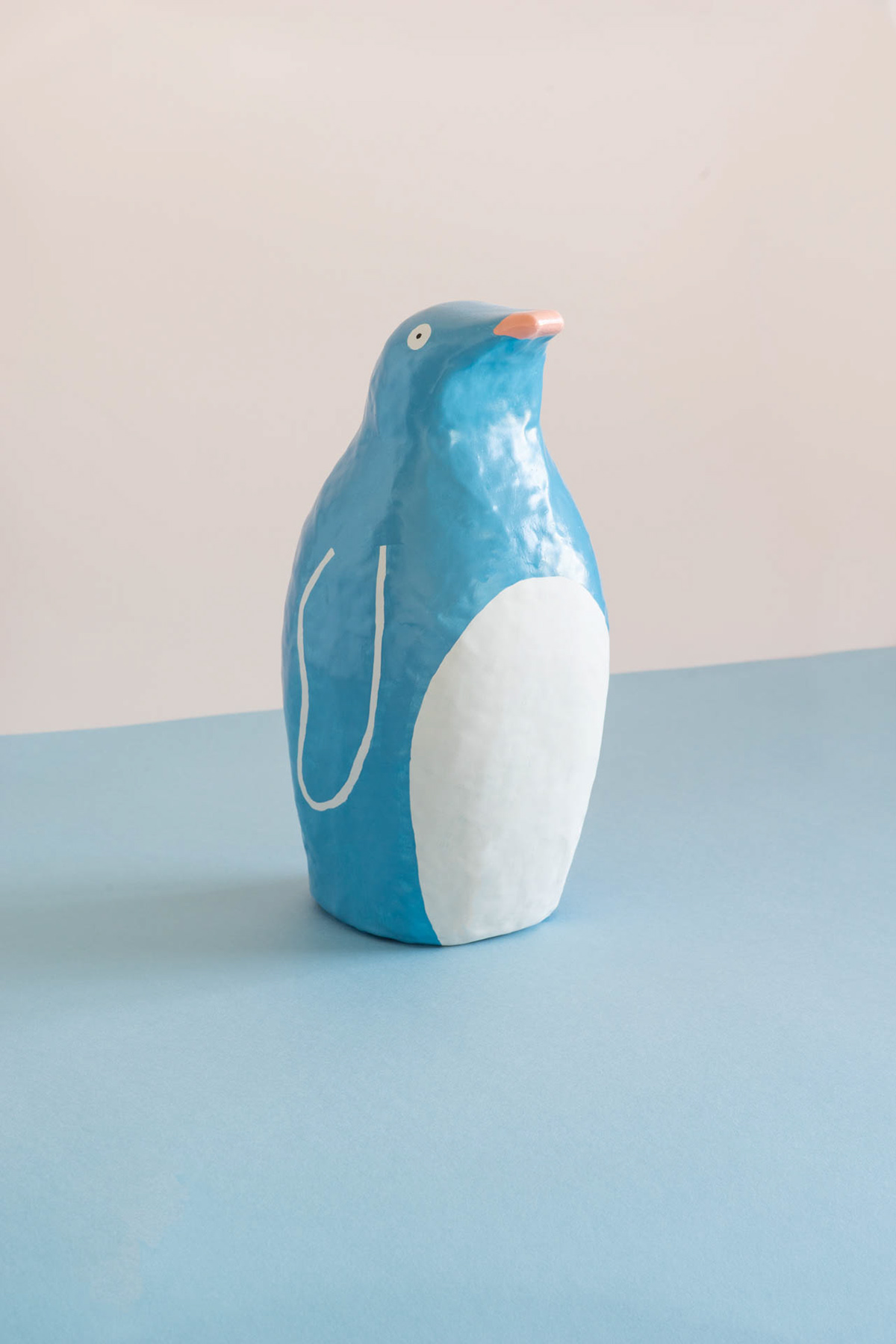
Harikodomo / Another form to papier-mâché amulet
2023 | Client: Public and Design
Direction:
Rika Ishizuka (Public and Design)
Masashi Kawauchi (Public and Design)
Shigeta Togashi (Public and Design)
Rika Ishizuka (Public and Design)
Masashi Kawauchi (Public and Design)
Shigeta Togashi (Public and Design)
Design:
Tsubasa Koshide (Tak studio)
Kyohei Tsuchida (Tak studio)
Keita Akiyama (Fushigi Design)
Tsubasa Koshide (Tak studio)
Kyohei Tsuchida (Tak studio)
Keita Akiyama (Fushigi Design)
Harikodomo is a collection of five species of birds crafted into Hariko amulets (a traditional Japanese papier-mâché) after having sessions with those who identify themselves as a member of the LGBTQ community as well as those who are undergoing fertility treatments. We now live in a world where giving birth is not always a part of our lives. The question here is, does our traditional safe childbirth amulets, for example, Inu Hariko, reinforce in silence certain stereotypes related to childbirth such as our expectation for safe childbirth or multiple childbirth, or experiencing childbirth and its pain yourself is what we should consider as happiness?
This also reveals the fact that although there have been many amulets for safe childbirth, multiple childbirth and family prosperity, alternative lifestyles and concerns have been overlooked for a long period of time. We have created amulets to visualize hopes and wishes that had been disregarded until now by researching and gaining inspirations from the behaviors of various species of birds in terms of how they produce and raise their offsprings. We hope that our artworks will start your journey of learning and thinking about the diversity in childbirth and childcare.

Emu is a bird with a large back spotted in the deserts of Australia.
It has a distinctive breeding behavior which seems like a polyandry or a polygyny of humans. A female emu dissolutes her partnership with the male partner after laying an egg and leaves to partner with another male. The male birds also partner with multiple female birds; however, it is their role to look after the eggs and their offspring.
The emu Hariko based on this habit is crafted in the hope that every male parent can take care of their child without any awkwardness.

Rufous hawk-cuckoo is a migrant bird that travels to Japan in the spring time. It is not common for this species to nurture their offspring themselves, and instead, they perform an interspecific brood parasitism involving other species of birds such as erithacus cyane or blue-and-white flycatchers. We are yet to find out the reasons why certain cuckoos including Rufous hawk-cuckoos show this behavior, however, research indicates that it is due to their deficiency in thermoregulatory function which leads to higher hatching rate when their eggs are incubated by other species.
The rufous hawk-cuckoo Hariko based on this habit is crafted in the hope that children grow healthily in any kind of environment.

Shoebill is a large solitary bird. In their parenthood, a couple builds a nest measuring up to a meter in diameter and works together, but each has its own territory with minimal interference, eating at the other end of the nest to provide enough room for each other.
The shoebill Hariko based on these habits is crafted in the hope that couples enjoy their own lives in raising children, keeping their own pace.

Tawny owl is a small owl spotted in forests and urban cities in Europe and West Asia. A pair of tawny owls in London were unable to have offspring for a long period of time as their own eggs did not hatch. When the pair's nest was entrusted with a baby bird which had been abandoned, the two raised the bird though they were not its biological parents.
Although little is known about whether it is common for a tawny owl to act as an adoptive parent, the tawny owl Hariko based on this story is crafted in the hope that everyone who wishes to become a parent is gifted with a child.

Penguin couples of the same sex have been reported around the world.
For example, the same sex couple incubated an egg at Central Park Zoo in the U. S. (the picture book and Tango makes three is based on this case) and a male couple was found at Sumida Aquarium in Japan.
The penguin Hariko based on these couples are crafted in the hope that families with any kind of structure live a healthy life.
